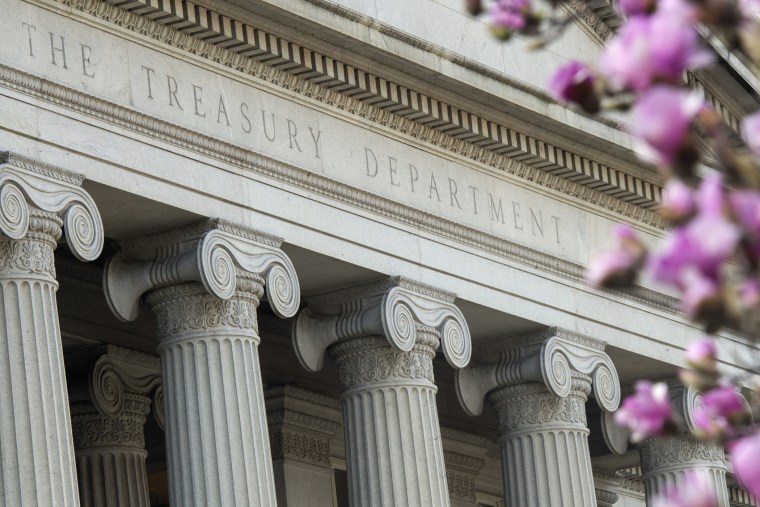About five years ago, the Treasury Department's Office of Tax Analysis completed a study that found workers end up paying roughly 18% of the existing corporate tax, while corporate owners pay 82%. This wasn't exactly surprising: the results were in line not only with the assessments of most economists, but also data compiled by the Joint Committee on Taxation and the Congressional Budget Office.
Up until recently, this analysis was publicly available through the Treasury. As the Wall Street Journal reported overnight, that analysis has now vanished -- because it "contradicts Secretary Steven Mnuchin's argument that workers would benefit the most from a corporate income tax cut."
The paper was available on the Treasury website during the summer, and it wasn't clear when it was removed or whether Treasury intended to publish a new analysis. Other technical papers from 2008 through 2016 remain on its site, along with working papers dating back to 1974.
For Mnuchin, it's critical that people believe that a corporate tax break would benefit workers, which makes all of the evidence to the contrary quite inconvenient.
Evidently, Donald Trump's Treasury secretary believes the proper solution is to make that evidence disappear -- even if it came from career officials at his own cabinet agency.
Mark Mazur, the top Treasury tax policy official until January, told the WSJ, "The career economists who worked on this technical paper did a great job summarizing the mainstream of economic thought on this important topic. They shifted my thinking a bit, by pointing out clearly how some of the burden gets shifted to labor. The public interest is advanced by using the best economic science available and being transparent about the analysis undertaken."
That's true, though the political interests of Trump World prefer a very different approach.
If this sounds vaguely familiar, it's probably because the Bush/Cheney administration developed a reputation for pulling a similar trick.
In 2005, for example, after a government report showed an increase in terrorism around the world, the administration stopped publishing annual data on international terrorism. When the Bush administration was discouraged by data about factory closings, the administration announced (on Christmas Eve) it would stop publishing information about factory closings. When Bush’s Department of Education found that charter schools were underperforming, the administration sharply cut back on the information it collected about charter schools.
And 12 years later, confronted with a report that shows Republican rhetoric on corporate taxes is backwards, Trump's Treasury Department has decided the evidence no longer needs to be publicly available.
